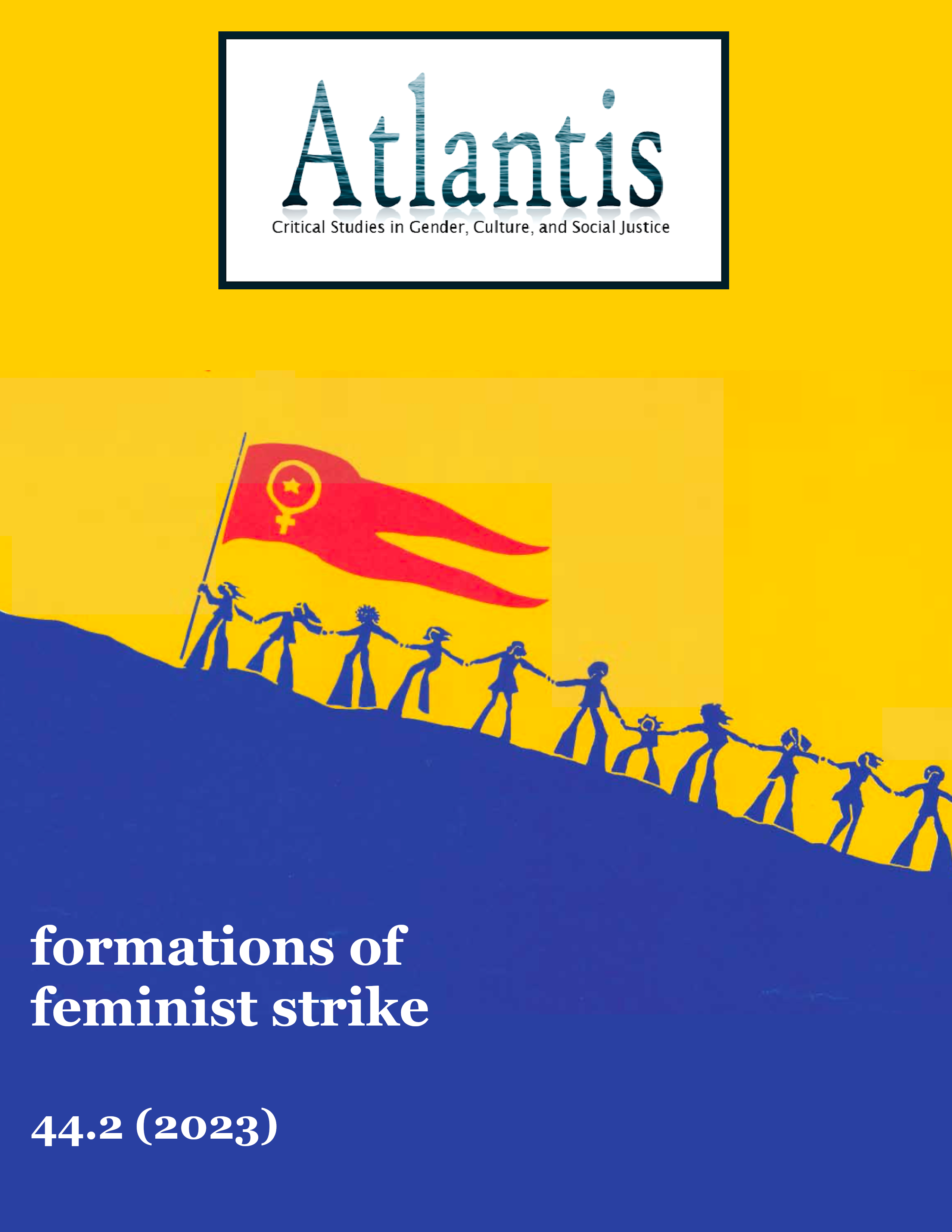Feminist Strike: Liberia
Keywords:
African feminism, Liberia, resistance, sex strike, sexual violence, warAbstract
This paper examines the notion of feminist strike in reference to women peacemakers in Liberia. It argues that women's actions to bring an end to the war both instantiates normative notions of the feminist strike and expands them. Drawing on literature which points to a long history of Liberian women organizing as women with special roles and responsibilities in society, the paper invites us to adopt a broad understanding of the feminist strike. It also suggests that women's mobilization around the concept of a sex strike to force the end of war in the early 2000s, was a powerful and savvy move which criticised sexual violence in wartime, leveraged international attention, and also highlighted, if implicitly, the issue of sexual rights in marriage.
References
Campillo, Inés Campillo. 2019. “If we stop, the world stops”: the 2018 feminist strike in Spain, Social Movement Studies, 18:2, 252-258, DOI: 10.1080/14742837.2018.1556092
Diabate, Naminata. 2020. Naked Agency: genital cursing and biopolitics in Africa. Duke University Press,
Ebila, Florence, and Aili Mari Tripp. 2020. "Naked transgressions: gendered symbolism in Ugandan land protests." In Body Politics, eds Brown, Nadia, and Sarah Allen. Routledge: pp. 25-45
Fuest, Veronika. 2009. “Liberia’s Women Acting For Peace: Collective Action In A War-Affected Country." In Stephen Ellis, and Ineke Van Kessel, eds. Movers and shakers: Social movements in Africa. Vol. 8. Brill, 2009: pp. 114-137.
Gago, Verónica, and Raquel Gutiérrez Aguilar. 2020. "The Feminist Strike as Threshold" New Global Studies 14, no. 2: 111-120. https://doi.org/10.1515/ngs-2020-0012
Gbowee, Leymah, with Carol Mithers. 2011. Mighty Be Our Powers : How Sisterhood, Prayer, and Sex Changed a Nation at War: A Memoir. London: Beast Books.
Moran, Mary H. 1989. "Collective action and the ‘representation’ of African women: A Liberian case study." Feminist Studies 15, no. 3: 443-460
Moran, Mary. 2012. “Our Mothers have Spoken: Synthesizing Old and New Forms of Women’s Political Authority in Liberia,” Journal of International Women’s Studies, 13, 4: 51-66, p. 60.
Scully, Pamela. 2016. Ellen Johnson Sirleaf (Short Histories of Africa, Ohio University Press, 2016) and in African Leaders of the Twentieth Century, Volume 2 (Athens: Ohio University Press, 2022)
Van Allen, Judith. 1972. "‘Sitting on a man’: colonialism and the lost political institutions of Igbo women." Canadian Journal of African Studies/La Revue canadienne des études africaines 6, no. 2: 165-181.
Van Allen, Judith. 2007. Feminism and Social Democracy in Botswana, Socialism and Democracy, 21:3: 97-124, DOI: 10.1080/08854300701599825
Whetstone, Crystal Marie. 2013. "Is the Motherist Approach More Helpful in Obtaining Women's Rights than a Feminist Approach? A Comparative Study of Lebanon and Liberia." PhD diss., Wright State University.
Downloads
Published
Issue
Section
License
Copyright (c) 2023 Pamela Scully

This work is licensed under a Creative Commons Attribution 4.0 International License.
Authors who publish with this journal agree to the following terms:
1. Authors retain copyright and grant the journal right of first publication, with the work simultaneously licensed under a Creative Commons Attribution 4.0 International License that allows others to share the work with an acknowledgement of the work's authorship and initial publication in this journal.
2. Authors are aware that articles published in Atlantis are indexed and made available through various scholarly and professional search tools, including but not limited to Erudit.
3. Authors are able to enter into separate, additional contractual arrangements for the non-exclusive distribution of the journal's published version of the work (e.g., post it to an institutional repository or publish it in a book), with an acknowledgement of its initial publication in this journal.
4. Authors are permitted and encouraged to preprint their work, that is, post their work online (e.g., in institutional repositories or on their website) prior to and during the submission process. This can lead to productive exchanges, as well as earlier and greater citation of published work. Read more on preprints here.







